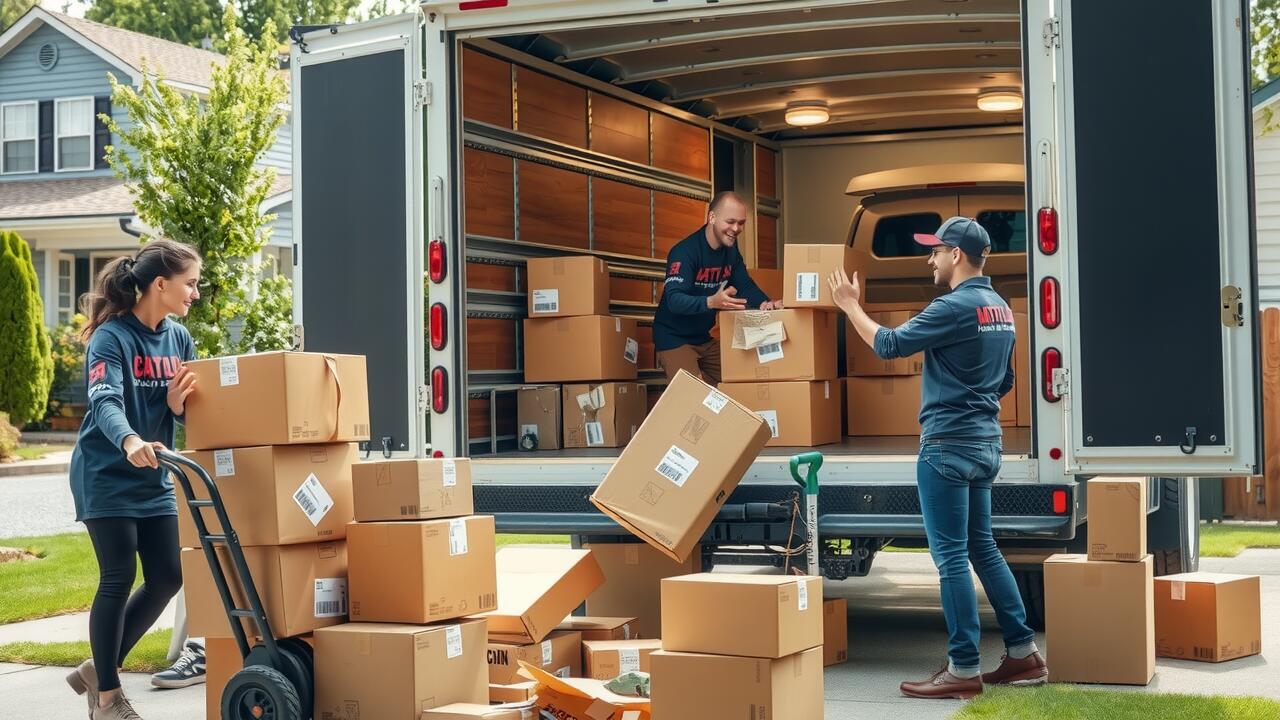
Table Of Contents
Insurance and Liability Coverage
When planning a move, understanding insurance and liability coverage is essential. Moving companies often offer various options to protect your belongings, ranging from basic coverage to full-value protection. Basic coverage typically provides limited reimbursement based on weight rather than actual value, which may result in insufficient funds to replace damaged or lost items. Full-value protection offers more comprehensive coverage, ensuring that you receive compensation equivalent to the worth of your possessions. This added security comes with a higher cost but is often worth the peace of mind.
For those considering Local and Long Distance Moving in Richland, Washington, it's crucial to assess the specific insurance options available through local movers. Each company may have different policies regarding liability and coverage limits. Additionally, you may want to check if your homeowner's insurance policy offers any moving coverage. This could potentially save you money while still providing adequate protection for your belongings during the transition. Evaluating both the costs and benefits of each coverage type will help determine the best approach for your move.
Types of Coverage and Their Costs
When planning a move, understanding insurance options is crucial. Basic coverage, often included in moving quotes, typically offers limited protection, covering only a portion of the value of your belongings. This standard option may not account for all your items, leading many to consider purchasing additional coverage for peace of mind during Local and Long Distance Moving in Richland, Washington.
For more comprehensive protection, movers usually provide full value protection plans. These plans ensure that, in the event of loss or damage, your items are either repaired or replaced at their current market value. Costs for such coverage vary based on the moving company and the total value of your belongings. Assessing your specific needs and the value of your possessions can help determine which type of coverage is right for your situation.
DIY Moving Costs
Taking on a DIY move can significantly reduce costs compared to hiring professional movers. When moving a 1500 sq ft house, the primary expenses involve renting a moving truck, purchasing packing supplies, and potentially hiring labor for heavy lifting. Truck rental prices vary based on distance and time of use, with local rates often more affordable than long-distance options. However, it’s crucial to factor in fuel costs and insurance for the vehicle, which can add to the overall expense.
In addition to transportation, packing materials can quickly accumulate costs if not planned carefully. Boxes, tape, and protective wraps ensure belongings are secure but should be budgeted effectively. Local and Long Distance Moving in Richland, Washington, may present unique challenges, such as navigating tight streets or managing traffic. Being aware of these factors helps in creating a realistic moving budget while taking on the responsibility of a DIY move.
Equipment Rental and Transportation
When planning a move, whether for local and long distance moving in Richland, Washington, equipment rental plays a significant role in budgeting. Renting a moving truck will typically range from $20 to $100 per day, depending on the size of the vehicle and the distance required. Additional fees, such as mileage charges, fuel costs, and insurance, should also be factored in to get a clear picture of total rental expenses. Using dollies, moving blankets, and packing supplies will further increase costs but can help streamline the packing and moving process.
Transportation costs can vary significantly based on the distance traveled and the size of the load. For longer distances, costs may include not only the truck rental but also hiring professionals for loading and unloading. If you choose to go with a full-service moving company, prices can escalate quickly due to labor and time. It's important to weigh the pros and cons of DIY moving against full-service options, as the latter provides expertise and convenience but at a higher price point.
Hidden Expenses in Moving
Moving can often come with unexpected costs that catch homeowners off guard. While you may have budgeted for the main expenses, hidden charges can quickly add up. Fees for services such as packing materials, temporary storage, and even fuel surcharges for the moving truck can significantly impact your overall budget. Depending on the specifics of your move, these additional expenses can vary, making it crucial to account for them in your planning.
For those considering Local and Long Distance Moving in Richland, Washington, understanding the full scope of potential costs is essential. You might encounter added fees for things like mileage, stair carries, or large items that require special handling. Planning for these hidden expenses can help you avoid surprises on moving day, ensuring that your budget remains intact throughout the process.
Unforeseen Charges to Anticipate
When planning a move, it is vital to account for unforeseen charges that can quickly add to the overall cost. These expenses often arise from various factors such as needing extra manpower, fuel surcharges, or additional fees for moving specialty items. An underestimation of the packing materials required can also lead to last-minute purchases, which add to the final bill. Local and long distance moving in Richland, Washington, may involve navigating narrow streets or dealing with difficult access points, leading to additional costs for services like hoisting or packing help.
Another factor to consider is the potential delays that could impact your move. Weather conditions can be unpredictable and might necessitate changes in plans and schedules. If a move takes longer than anticipated, hourly charges may increase and can strain your budget. Additionally, unexpected issues at the new location, such as delays in utility setup or repairs, can result in extra days being required for accommodation or storage. Being prepared for these unforeseen charges will help ensure you remain within your budget during the moving process.
FAQS
What factors influence the cost of moving a 1500 sq ft house?
Several factors can influence the cost, including the distance of the move, the time of year, the level of service selected (full-service vs. DIY), additional services required (like packing and unpacking), and the specific moving company chosen.
How much can I expect to pay for professional moving services for a 1500 sq ft house?
Professional moving services for a 1500 sq ft house typically range from $2,000 to $5,000, depending on the factors mentioned and whether you choose a full-service option or just transportation.
What are some common hidden expenses when moving?
Common hidden expenses can include packing supplies, potential storage fees, utility connection costs, and fees for moving specialty items like pianos or large furniture.
Is it cheaper to move myself instead of hiring professionals?
While DIY moving can save money, it may involve costs for equipment rental, transportation, and additional labor, making it important to carefully compare total expenses against hiring professional movers.
What types of insurance coverage should I consider when moving?
You should consider options like basic liability coverage provided by movers, full-value protection, and additional insurance for high-value items. Each type has different costs and levels of protection, so it's essential to evaluate your needs.
